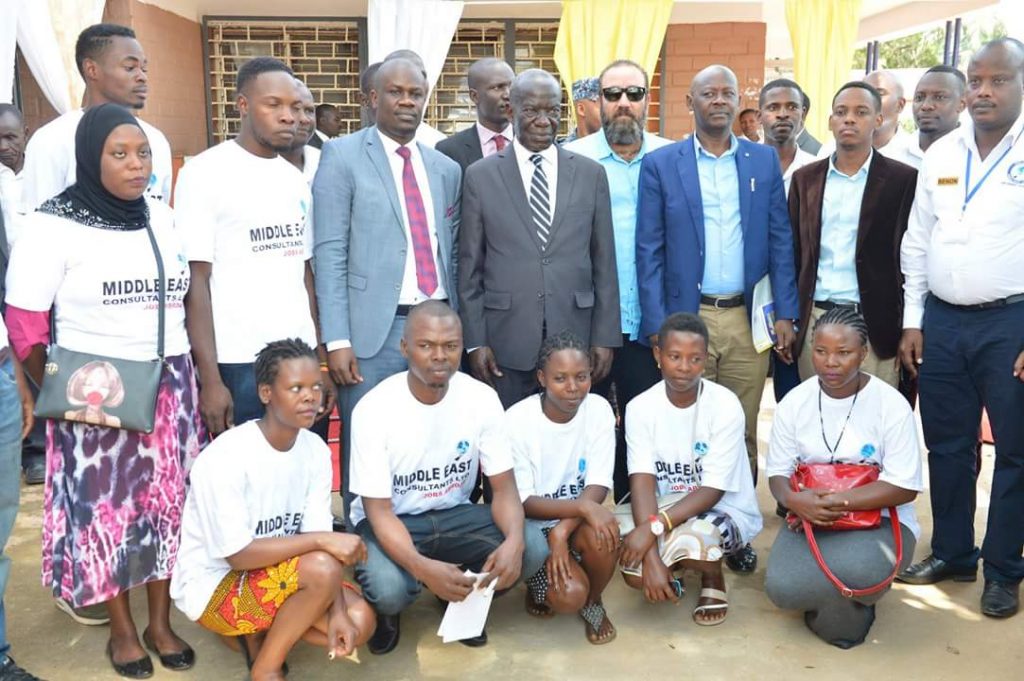Middle East Consultants, a labour recruiting company based in Muyenga, an upscale suburb of Kampala has yet again been ordered to close shop after defying government directives on charging fees from workers.
Speaking to the media on Thursday, The Permanent Secretary of Gender Ministry James Ebitu said that Middle East and other five companies had refused to adhere to guidelines resulting into suspension.
“You will recall that 1 addressed you on 40 February 2020 as a response to a number of complaints we receive, and also read in the press and on social media, regarding the unscrupulous action of charging of illegal registration and placement fees by licensed recruitment agencies,” said Ebitu.
Ebitu said regulation 29(1) of the employment (Recruitment of Uganda Migrant Workers Abroad) Regulations, 2005 limits the chargeable administration tees to Fifty thousand shillings only (UGX 50,000) Regulation 29(2) provides that any further placement fees must be approved by the Administration, which is Ministry of Gender.
“In addition, Regulation 29(3) provides that placement fees shall be collected from a Ugandan Migrant worker only after he or she has signed the employment contract.”
The Ministry had informed all recruitment agencies giving them two weeks to refund the said fees by the 171 day of February 2020. They were warned them that failure to do would lead to immediate suspension of a company’s license.
“Unfortunately a number of companies did not comply with the said directive, and have failed to pay back these monies. As of midnight yesterday (17th February 2020), the following five (5) companies had not complied: Middle East Consultants, Elite Placement Consulting, Eagle Supervision, Elite Winners Agency, Spotlight International and High Ground International Ltd,” Ebitu said.
Ebitu added that consequent to the above, these companies have been suspended, and have been directed to desist from any acts of labour externalization as from 18th February 2020.
“Anyone dealing with them does so at his/her own risk,” Ebitu warned.
